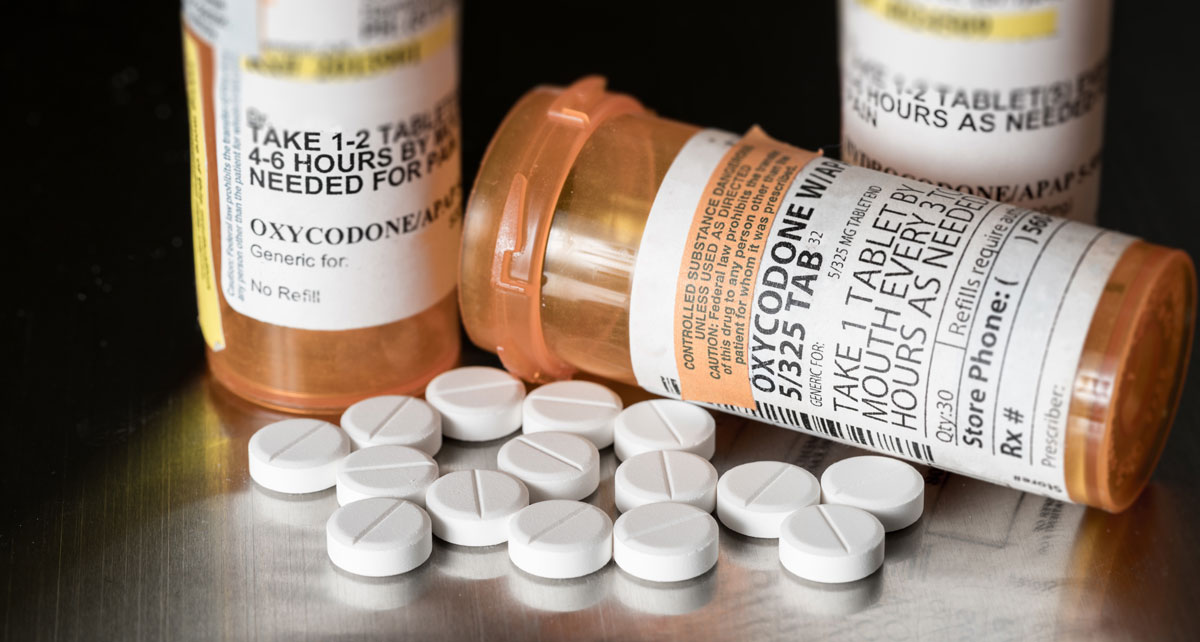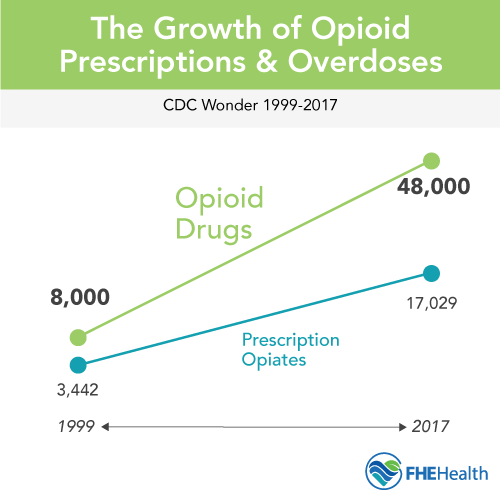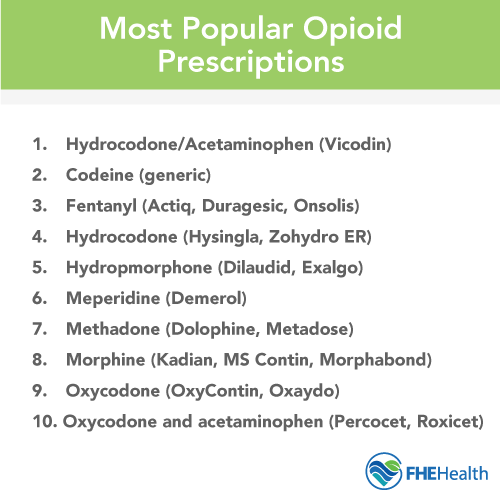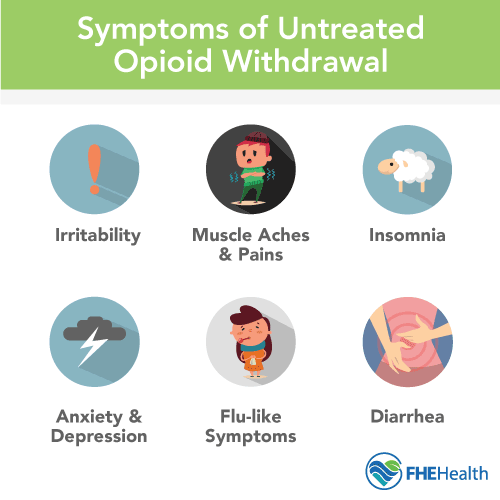
As the United States continues to struggle through the widespread epidemic of addiction to opiates, effective addiction treatment is the only thing that has shown to help stem the tide.
The numbers are shocking, according to the National Institute on Drug Abuse: Between 1999 and 2017, overdose deaths involving opioid drugs grew by a factor of nearly 6, from a little over 8,000 to just under 48,000. A similar increase occurred in overdose deaths involving prescription opiates, a subset of the opioids category. In the same 18-year period, this number climbed from 3,442 to 17,029.
There are few clearer signs that access to effective treatment — especially detox — is one of the biggest needs in the industry right now. Here’s what to look for in a treatment plan for prescription opiate addiction, and FHE Health (formerly known as the Florida House Experience) can provide this effective treatment to those in need.
What Are Prescription Opiates?
 Opiates are drugs derived from the poppy seed plant and a subcategory of opioids. Opiates were made to have the same pain-relieving effects of morphine, but in the beginning, these drugs weren’t advertised to be as addictive as their relatives used in many hospital settings.
Opiates are drugs derived from the poppy seed plant and a subcategory of opioids. Opiates were made to have the same pain-relieving effects of morphine, but in the beginning, these drugs weren’t advertised to be as addictive as their relatives used in many hospital settings.
In fact, in the past few years, high-profile lawsuits have brought to light purposely misleading marketing regarding the addictive potential of some very well-known drugs. By June 2019, for example, Purdue Pharmaceuticals — the maker of the notorious prescription opioid OxyContin — was being sued by nearly every U.S. state for the role the company played in the spread of opiate addiction.
What was created was a drug with euphoric effects very few others can contest. This was made worse by an explosion of increased prescriptions over the last few decades. Between 1999 and 2010, the number of average monthly opioid prescriptions written quadrupled, according to the Centers for Disease Control and Prevention (CDC).
Today, prescription opiates are not as easy to get, but the damage is done and many still continue to suffer the consequences. Those who were abusing prescription opiates turned to other substances or have been forced to obtain their drugs illicitly.
The Need for Detox When Facing an Opiate Addiction
One of the things to remember about prescription pain relievers like opiates is that when misused, they are no longer safe to use. Many people don’t treat these drugs seriously, falsely believing that, if a doctor prescribes a drug, it must be safe. The number of overdose deaths caused solely by prescription opiates should highlight the fact that this is simply not true.
How Opiate Addiction Is Particularly Dangerous

- OxyContin (Oxycodone)
- Percocet (Oxycodone/Acetaminophen)
- Vicodin (Hydrocodone/Acetaminophen)
Statistically, most people take these drugs as directed and stop when their prescription is used up or when the pain subsides, but this doesn’t mean that the number of people who abuse prescription drugs is low. According to NIDA, between 21% and 29% of people who are prescribed opioids for pain misuse them.
When people start to misuse these drugs, addiction can set in quickly. Drugs in the opiate class target certain parts of the brain called opioid receptors. Essentially, molecules from these drugs fill the brain’s opioid receptors, triggering the release of a high amount of dopamine, the chemical in the body that causes pleasure.
Once these drugs are taken consistently, they start to change the chemistry of the brain. A person who uses a drug from this category begins to not be able to function without the influence of the drug. One side effect is that each time, the euphoric feeling caused by the opiates becomes weaker and weaker, so the user has to take more to regain the same feeling. This presents the opportunity for an overdose, even when the user doesn’t realize how much of a given substance they’re taking.
What Happens During Detox

You must prepare for a long journey of detox and withdrawal to get clean from opiates in your body. You can expect symptoms of withdrawal from opiates to include:
- Irritability
- Muscle aches and pains
- Insomnia
- Anxiety and depression
- Flu-like symptoms
- Diarrhea
- Nausea
- Abdominal cramps
- Severe opiate cravings
- Cold and hot sweats
Because the symptoms of withdrawal from all opiates are so harsh, many people who are addicted to opiates relapse soon after beginning the process. Not only does this effectively take them back to square one, but it also makes them more susceptible to overdose. During opiate withdrawal, the body’s tolerance decreases, but the user typically doesn’t realize it when they relapse. They may go back to using an amount of the drug similar to what they were using previously, but their decreased tolerance can make it easy to take too much.
Options for Detox from Prescription Opiates
Medical detox that includes around-the-clock care that takes place under the watchful eye of a medical expert continues to be the most successful and recommended step. Many try to get clean on their own and find it not only difficult to commit to but extremely uncomfortable and even dangerous. Most users have tried to quit on their own, but without a support system and medical support, they are unlikely to succeed.
Medical detox is suggested for anyone attempting to get clean from opiates. Withdrawal symptoms are more severe with opiates than any other class of drugs, so the chance of relapse after detox is high. Additionally, symptoms of withdrawal can be helped with certain medications administered at medical detox centers. FHE Health has a state-of-the-art detox facility that specializes in guided medical detox for any of our opiate-addicted patients.
If you are familiar with rehab facilities, you might have heard of methadone. This substance was once considered the gold standard for medically assisted treatment, or MAT, used to help addicts handle withdrawal more gradually.
Methadone had its negatives, not the least of which was the fact that it was highly addictive in its own right. Since then, medication-assisted treatment has improved.
Buprenorphine is a drug that is commonly used in residential treatment programs as well as outpatient clinics to help patients suffering from opioid addiction get clean. It’s referred to as a partial opioid agonist, meaning it competes for the same receptors in the brain as addictive opiates. Buprenorphine is technically an opiate drug, but it’s not as strong.
Often, buprenorphine is combined with Naloxone, a drug that prevents misuse. This combination occurs in a drug called Suboxone®, one of the most commonly prescribed drugs on the market today for opiate addiction.
What Are the Next Steps After Detox?
Detox can be paired with an inpatient or outpatient stays, and the next steps vary widely based on the program you’re in.
While different people respond better to some types of treatment over others, NIDA’s Principles of Effective Treatment makes it very clear that longer equals better when it comes to remaining in treatment.
The fact is, addiction isn’t simple, and someone won’t be instantly cured after successfully completing detox. This is why a treatment that takes place solely as an outpatient process is thought to be less effective than treatment that includes residential care at a dedicated facility.
Residential care gives someone addicted to prescription painkillers a place to recover, as well as the time to figure out what works for them in order to rebuild a stable life, free of addictive substances.
Prescription Detox in South Florida
FHE Health is proud to offer treatments that cover the entire continuum of care. We know that by adopting industry best practices, we can get our patients the best help available, whether it’s for prescription opiate addiction, a mental health disorder or something else.
If you or someone you know is struggling with addiction, don’t wait until it’s too late. Contact the experts at FHE Health and learn about all of your treatment options.








